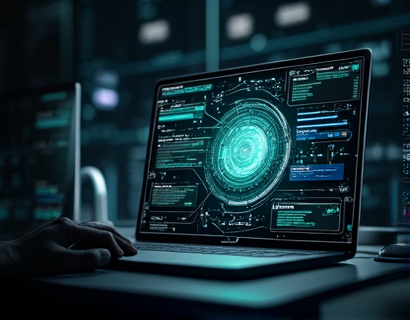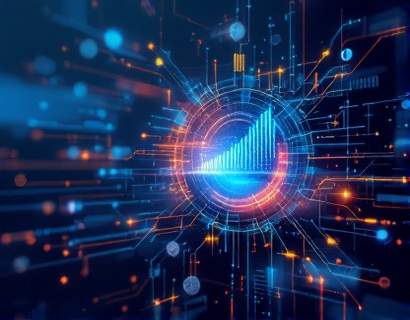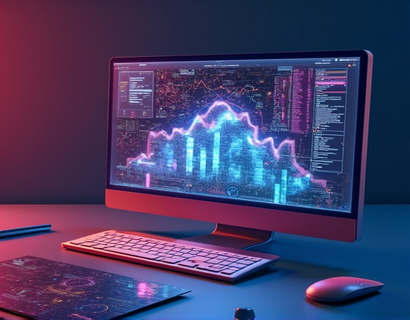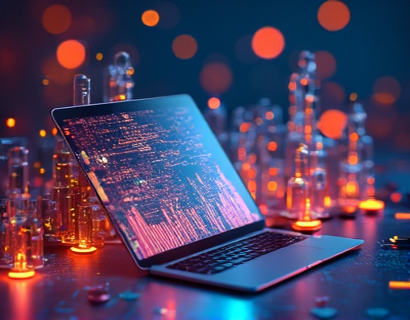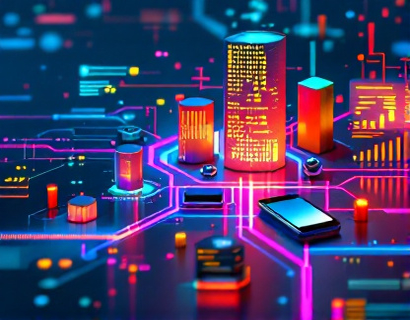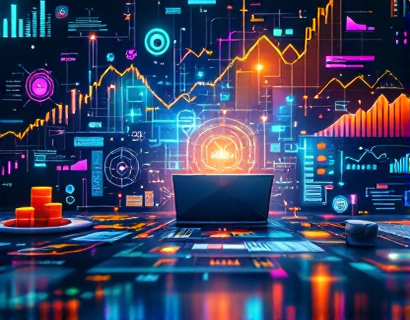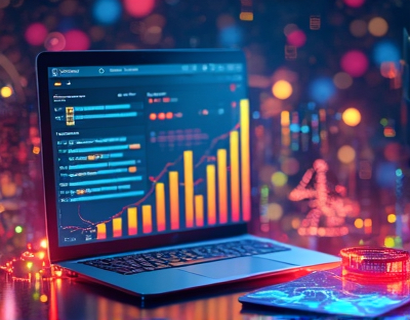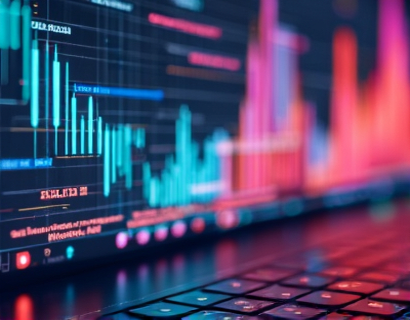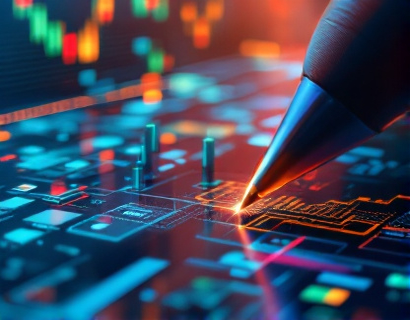Unlocking Next-Gen Productivity: The Synergy of AI and Crypto
The intersection of artificial intelligence and cryptocurrency is giving birth to a new era of digital solutions, promising unprecedented levels of productivity and app accessibility. This fusion is not just a technological curiosity but a practical approach to solving complex problems in the digital realm. For tech enthusiasts and early adopters, this synergy represents a frontier where innovation meets practicality, offering tools that redefine how we manage tasks and access applications.
Enhancing Efficiency with AI-Powered Crypto Tools
The integration of AI into cryptocurrency platforms is revolutionizing the way users interact with digital assets. AI-driven wallets, for instance, can predict market trends, automate trading decisions, and manage portfolios with a level of sophistication previously unattainable. These tools analyze vast amounts of data in real-time, providing insights that help users make informed decisions quickly. The result is a significant boost in efficiency, allowing individuals to focus on strategic planning rather than mundane tasks.
Moreover, AI-powered crypto exchanges are streamlining the trading process. These platforms use machine learning algorithms to match buyers and sellers more effectively, reducing transaction times and costs. The smart contract technology inherent in many blockchain-based systems ensures that transactions are executed automatically and securely, minimizing the need for intermediaries. This not only speeds up the process but also enhances trust and transparency in transactions.
Streamlining Workflows with AI and Crypto
In the corporate world, the combination of AI and cryptocurrency is transforming workflow management. AI-driven project management tools can predict project timelines, allocate resources optimally, and identify potential bottlenecks before they become issues. When integrated with blockchain technology, these tools can ensure that all transactions related to project funding, payments, and asset transfers are secure and immutable. This creates a seamless and transparent workflow that boosts productivity and accountability.
For instance, AI can analyze historical data to forecast project costs and resource requirements, while smart contracts can automate payments to contractors and suppliers based on predefined milestones. This automation reduces administrative overhead and ensures that projects stay on track. The use of tokens for internal transactions within organizations further simplifies financial management, eliminating the need for traditional banking systems and reducing transaction fees.
Improving App Accessibility Through Decentralized Solutions
One of the most significant advantages of combining AI and cryptocurrency is the enhancement of app accessibility. Decentralized applications (dApps) built on blockchain platforms can offer users greater control over their data and privacy. AI can enhance this by personalizing user experiences, adapting interfaces to individual needs, and providing real-time assistance. For example, AI-powered chatbots can guide users through complex applications, offering step-by-step instructions and troubleshooting common issues.
Moreover, AI can help in making applications more accessible to users with disabilities. Voice recognition and natural language processing technologies can enable hands-free operation, while machine learning algorithms can adapt interfaces to accommodate various disabilities. This inclusive approach ensures that a broader range of users can benefit from digital tools, breaking down barriers and promoting equal access.
Tokenization of Digital Assets and Services
The tokenization of digital assets and services is another area where AI and cryptocurrency converge to create innovative solutions. By representing assets as tokens on a blockchain, these platforms enable fractional ownership, liquidity, and easy transferability. AI can optimize the tokenization process by analyzing market conditions, predicting asset values, and automating the issuance and management of tokens. This not only democratizes access to investments but also enhances the efficiency of asset management.
For instance, AI can be used to create dynamic pricing models for tokenized assets, adjusting prices based on supply and demand in real-time. Smart contracts can automate the distribution of dividends or returns to token holders, ensuring transparency and fairness. This combination of technologies opens up new opportunities for investors and creators alike, fostering a more inclusive and dynamic economic ecosystem.
Enhancing Security and Trust with AI and Blockchain
Security and trust are paramount in the digital age, and the synergy of AI and blockchain addresses these concerns effectively. AI can detect and mitigate security threats in real-time, analyzing patterns and anomalies to prevent breaches before they occur. Blockchain's inherent security features, such as immutability and decentralization, provide a robust foundation for secure data storage and transaction processing. When combined, these technologies create a nearly unhackable system that users can trust.
Furthermore, AI can enhance the user experience by providing personalized security measures. For example, AI-driven authentication systems can use biometric data and behavioral analysis to verify user identities, reducing the risk of unauthorized access. This multi-layered approach ensures that sensitive information remains protected, giving users peace of mind as they navigate the digital landscape.
Future Prospects: The Next Generation of Digital Tools
As AI and cryptocurrency continue to evolve, the potential for innovation is vast. Future digital tools will likely integrate more advanced AI algorithms, such as quantum machine learning, to process even larger datasets with greater speed and accuracy. This will enable more sophisticated predictive analytics, personalized user experiences, and autonomous decision-making systems. The integration of AI with emerging blockchain technologies, like layer 2 solutions and interoperability protocols, will further enhance the scalability and efficiency of decentralized applications.
In the realm of app accessibility, the next generation of digital solutions will focus on creating fully adaptive and intuitive interfaces. AI will play a crucial role in developing systems that learn from user interactions, continuously improving the user experience. The combination of AI and blockchain will also pave the way for decentralized identity management, giving users control over their digital identities and ensuring privacy and security.
Ultimately, the fusion of AI and cryptocurrency is not just about technological advancement; it's about creating a more efficient, secure, and inclusive digital world. For tech enthusiasts and early adopters, this journey is an exciting opportunity to be at the forefront of a revolution that will shape the future of digital tools and services.






